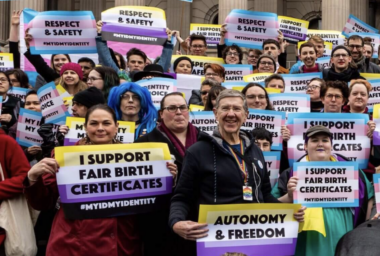Media release | Monday, 4 March 2024
People experiencing financial and social disadvantage are struggling to keep their homes cool in summer and becoming seriously unwell from the heat, ACOSS research has found.
A survey conducted by ACOSS in partnership with First Nations Clean Energy Network of 1,007 people across Australia found 80 per cent of people were living in homes that are too hot in summer.
Concerningly, 61 per cent of those receive income support, 78 per cent are living in social housing, 66 per cent in private rentals, and 72 per cent of First Nations respondents struggled to cool their homes.
Eighty per cent said high temperatures in the home made them unwell and 14 per cent had sought medical attention for heat stress. That figure was 25 per cent for First Nations respondents. Most affected were those with chronic illness and or living with disability.
Common symptoms reported included headaches, heat rash, breathing problems, nose bleeds, dehydration, nausea and vomiting, flare ups in asthma, heart and vascular conditions, emphysema, diabetes and increasing anxiety and depression.
Almost all (94 per cent) of the people surveyed said they sometimes or always have difficulty sleeping in their home on very hot nights or during heatwaves.
Residents also said barriers to sheltering somewhere cooler included the cost of entry, cost of transport, mobility issues, caring duties and limited availability of cooler places.
Concerningly, 60 per cent of people surveyed were finding it increasingly difficult to pay their energy bills, with 26 per cent in or facing energy debt.
Of the people on income support, 69 per cent said they are in, or about to go into, energy debt with their retailer because they cannot afford their bills.
Julie McKenzie, who receives the disability support pension and lives in subsidised housing in Sydney, said: “I am glad to have this flat but I’m finding the summer months very hard because there is no air conditioning, no insulation and no ceiling fans.
“I don't leave the house because the library has limited hours, and going to the shops requires money and they are crowded.
“On hot days I just keep the blinds down, and lie down. I don’t sleep well and this impacts my chronic illness and mood.
“Recently my power bills have doubled even though I am using less energy. I was very grateful for the government rebate on the next bill. But my welfare payment did not double when my bill did, it is not keeping up with the price rise in essentials. There is nothing more that I can cut back on.”
ACOSS CEO Dr Cassandra Goldie said: “People experiencing financial and social disadvantage are the most severely, and most persistently affected by higher temperatures, but lack the choice or control to stay safe.
“Heatwaves are by far the greatest cause of extreme weather-related deaths. Climate change is exacerbating the intensity and duration of hot conditions - but many homes are not built to withstand them.
“Due to skyrocketing energy costs, inefficient homes and the glaring inadequacy of income support, people on low incomes cannot keep themselves cool, badly impacting their physical and psychological health.
“In the May budget, the government must invest further in energy efficiency, electrification and rooftop solar across all low-income housing types, incentivise minimum energy efficiency rental standards, and raise the rate of JobSeeker and related payments.”
Key findings
-
80% of people said their homes get too hot
-
60% of people receiving income support struggled to cool their home
-
72% of First Nations people struggled to cool their home
-
78% of people in social housing struggled to cool their home
-
66% of people in private rentals struggle to cool their home.
-
80% said the high temperatures in the home made them unwell (94% of First Nations respondents)
-
14% sought medical attention for heat stress (25% of First Nations respondents)
-
94% had difficulty sleeping due to heat
-
60% were finding it increasingly difficult to pay their energy bills, with 26% in or facing energy debt
Methodology: To track the intersection between housing, energy costs, heat, and people experiencing financial and social disadvantage, ACOSS conducted a public, online Heat Survey over the summer months in partnership with the First Nations Clean Energy Network, from December 2023 to January 2024. We received 1007 responses from people across the country, including: 66.1% receiving income support; 19.2% in social housing; 36.1% in private rental; 6.4% First Nations respondents. Additionally, 62.7% reported they or someone in their household has a disability or chronic health condition.
Read the full report: https://www.acoss.org.au/wp-content/uploads/2024/03/ACOSSHeatSurveyReport2024.pdf
Contact details:
Charlie Moore
0452 606 171
Georgie Moore
0477 779 928

